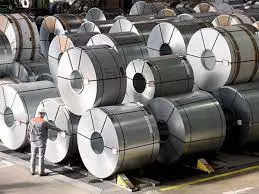
[ad_1]

It is often said that a thriving steel industry can be an important catalyst for industrialization. In India, for instance, the world’s second-largest producer, India’s steel consumption in FY23 – 120 MnT and is envisaged to be 200 MnT by 2030. More importantly, there are nearly 2.5 million Indians directly employed in the sector. Through the production of liquid steel and ingots, India is able to support its vast manufacturing landscape.
From machines and engines in the automotive industry, to cast iron and rods used in construction, a country witnessing tremendous growth and urbanization cannot do without an equally growing steel industry. As local demand is expected to reach 200 MnT and expected production around 300 MnT in 2030, the country has shown consistent self-sufficiency in steel to the point where revenues are derived from exports.
Strategic financial leadership in a time of industrial growth
As an influence for economic growth, it is important for players to build their individual firms towards financial stability to support the industry’s growth. This is where the Chief Financial Officer (CFO) comes into the picture. Steering a company operating in a capital-intensive, highly demanding industry like iron and steel requires top-tier financial management, financial strategy and planning, and careful monitoring of the company’s financial position.
As one who oversees the company’s financial activities, the CFO must be sensitive to the strengths and weaknesses of the company in order to make a meaningful impact. The place of strategic financial leadership in any company, and specifically in a steel company cannot be overstated. This may explain why most companies will require a CFO with many years of experience. This stems from the kind of capacity needed to champion growth through smart and timely financial decisions, in collaboration with the Chief Executive Officer (CEO).
Furthermore, the growth of the steel industry is largely dependent on activities in the manufacturing, infrastructure, and construction sectors, which are all expected to grow as infrastructure demand spikes. At the moment, these sectors take up about 65% of total steel production, with indications that it will surge in the years to come. Understanding how to navigate the financial standing of the company and making the right investments will help the company achieve a larger share of the growing market.
Building financial resilience for growth
The CFO is responsible for tracking the cash flow, assessing the financial performance of the company and proposing corrective steps if weaknesses or losses are observed. Beyond losses, the CFO is concerned with consistent and progressive growth. The CFO strives to do better than the last time and ensures the company stays on the path of growth and prosperity.
The CFO oversees every other finance and accounts officer in the company. As a member of the top most management team, the CFO plays a vital role in engaging the CEO and Chief Operating Officer (COO) of the company on ways to deal with financial trends and trajectory, necessary financial response to headwinds, and other situations that may pose a challenge to the financial and overall growth of the company.
Accuracy is a non-negotiable trait of the CFO, understanding that the financial data they provide are useful for making key decisions that can shape the company’s future. This is critical in the steel sector where competition is on the rise for dominance, and understanding when to move in certain directions can be the element that triggers growth for any company, and the industry at large.

About the Author: Deepak Goyal, Director Operations and Group CFO, APL Apollo Steel Tubes Ltd
Disclaimer: The views expressed are solely of the author and ETCFO.com does not necessarily subscribe to it. ETCFO.com shall not be responsible for any damage caused to any person/organisation directly or indirectly.


